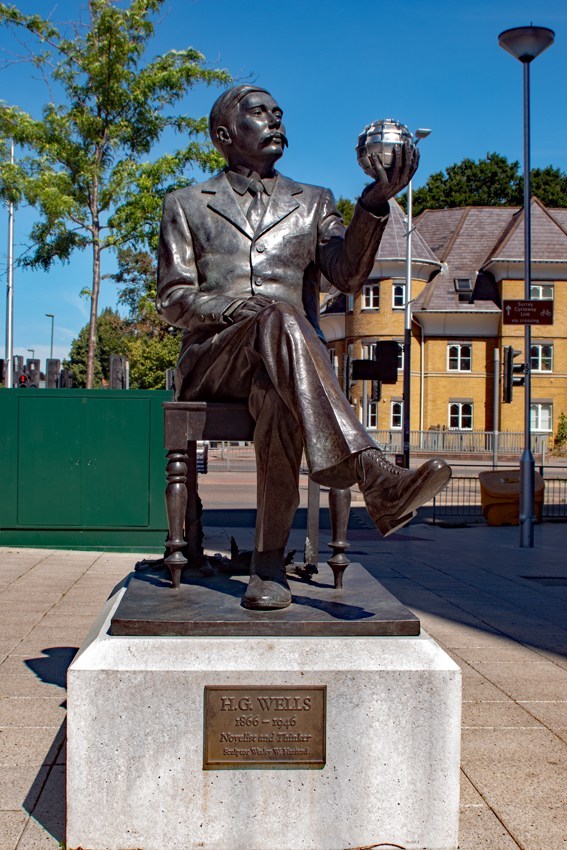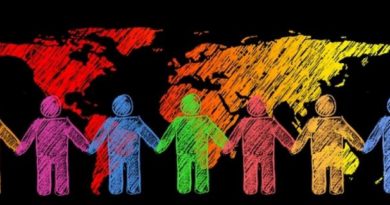Could a Form of “Liberal Fascism” Help Solve the World’s Problems?

Photo credit: Wikimedia Commons
In September 2020, in conjunction with the annual meeting of the United Nations, the World Economic Forum organized a summit meeting on what its leader, Klaus Schwab, was calling “The Great Reset.” The Forum convened leaders “from government, business, international organizations and civil society along with a diverse group of experts and innovators to initiate, accelerate and scale-up entrepreneurial solutions to tackle climate change and advance sustainable development.”
At the same time, world leaders like Justin Trudeau, Prime Minister of Canada, were using similar terms while speaking at the UN to argue that the COVID crisis had paradoxically opened up exciting new possibilities for global cooperation. As Trudeau put it, the “pandemic has provided an opportunity for a reset” to address “global challenges like extreme poverty inequality and climate change.”
Some progressives were not thrilled with this rhetoric. Winter Oak, a British nonprofit “with a serious aversion to industrial capitalism and a commitment to social justice,” declared the “Great Reset” an attempt to establish “transnational fascism” in order to “take total control over every aspect of our world.” They decried Schwab’s “chilling and grandiose vision of a ‘new order,’” crafted in secret and coded in anodyne “reset” messages.
The “Great Reset” was also widely embraced as a radical conspiracy across the internet and right-wing mainstream media. In its most “implausible version,” Quinn Slobodian writes in the Guardian, “this conspiracy imagines that a global elite is using COVID-19 as an opportunity to roll out radical policies such as forced vaccinations, digital ID cards and the renunciation of private property.”
Trudeau responded to just these sorts of “conspiratorial” suspicions in a press conference, assuring everyone that was no such coterie of world leaders constructing a “grand plot” to take over the world in the wake of the pandemic.
In fact, this is not a secretive cabal of political elites, meeting behind closed doors plotting a fascistic overthrow of the globe. It is much more in line with what one of the most popular progressive writers of the twentieth century, H.G. Wells, had advocated years before in a book he titled, aptly, The Open Conspiracy.
Though he is now most well-known for his science fiction novels, H.G. Wells also wrote a great deal on politics and history. Once a member of the Fabian Society, a pioneering association of socialist experts on public policy, Wells grew ever more bold in the kinds of political programs he was willing to entertain, fashioning them under what he called an “unorthodox” definition of liberalism.
Published in 1928, after the Great War, The Open Conspiracy was Wells’s “scheme to thrust forward and establish a human control over the destinies of life and liberate it from its present dangers, uncertainties and miseries.” Facing the prospects of environmental devastation and destructive nationalism across the globe, Wells wanted progressives to embrace a new world order that could save humankind from seemingly inevitable extinction.
Writing fourteen years later, in the midst of World War II, Wells identified three “imperatives” for the assurance of a peaceful global future in his 1942 work Phoenix: First, “the establishment of an overriding federal world control of transport and inter-state communications”; second, “the federal conservation of the world’s resources”; and third, “a common fundamental law.”
But why did Wells think such ambitions required an “Open Conspiracy”? Because he thought liberals had much to learn about the means necessary for such a world reorganization from the staggering successes of twentieth-century propagandistic fascism.
As he stated in an address to the Liberal Summer School at Oxford in July of 1932, an awakening of a new human spirit was required, making “the conception of an organized big-scale community the mental basis of [a] new generation.” In a society “too busy about its contemporary nothingness,” leaders must “appeal to the general intelligence by a propaganda”; and that “there must be a systematic organization of the will and ideas of public-minded, masterful people to handle the problems of the modern state.” “The Open Conspiracy” must be an “organization” that Wells called a “Liberal Fascisti.”
In the same way that today’s “Great Reset” is met with fears of its fascistic grandiosity, Wells received significant pushback for his argument. Surely he could not be advocating such an apparently anti-democratic proposal for the “brainwashing” of future generations.
Indeed he was — and he claimed the future of humanity depended on it.
The preservation of global peace and environmental good would require a massive re-education of the human race, universally led and enforced by leaders and citizens alike. If Wells insisted it must be seen as “conspiratorial” to convince human beings to do what is for their own good, then at least it would be an “open conspiracy.” Only a “liberal fascism” could counter the ascending powers of genuine — and genuinely evil — fascistic regimes, and the devastation Wells also saw in the impending environmental destruction of the planet.
To the Young Liberals at Oxford, Wells declared himself the defender of a new definition of liberalism: “It is the implicit recognition of the possibility of one prosperous and progressive world community of just, kindly, free-spirited, freely-thinking and freely-speaking human beings, and it is a struggle to release humanity from all that impedes our present realization of that possibility.” Liberalism, he stated, “means the progressive world state.” Foreshadowing his later work, in this 1932 lecture Wells called for a “Phoenix rebirth” of liberalism.
It is shocking how alike Wells’s concerns are to our own. Like today’s world leaders, Wells saw a window of opportunity in a time of crisis — of both rising nationalist politics and impending environmental catastrophes — to change things for the better.
But today’s “Great Reset” is not the “Open Conspiracy” Wells had hoped for. While the current visions for a better global future are barely distinguishable from those of Wells — grounded in further economic coordination and communication, the protection and preservation of the planet, and respect for universal human rights — Wells would undoubtedly declare that the “Great Reset” is not grand enough to match the ambitions of its advocates.
Instead of “vague promises of social reform,” the new world order needs both “a voice” and “a backbone” — the discipline to carry out the “programme for human liberation.” This would involve a new system of unified global education, a World State, the liberation of all persons from debt and poverty, and the cultivation of a “public mind” through a propaganda machine advocating rights and environmental protections. The only hope for the future, according to modernity’s greatest prophetic writer, H. G. Wells, was in a determined “liberal fascism.”
The conspiracy theorists and the critics at Winter Oak had it backwards. The liberal “Great Reset” is not secretly fascistic, it is openly conspiratorial. And, for H.G. Wells, it is also hardly “fascistic” enough to secure the future humanity needs to survive.
Emma Planinc is an assistant professor of political science in the Program of Liberal Studies at the University of Notre Dame.
*** This article has been archived for your research. The original version from publicseminar.org can be found here ***


